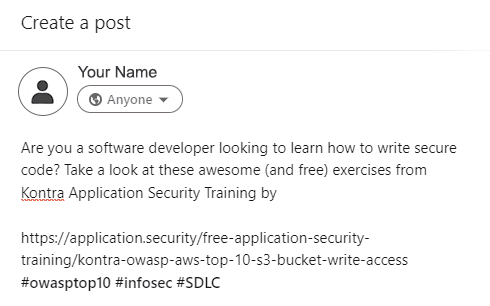Read Original Article by Business Insider
When Tammy Hinkle got divorced in 2015, she knew she was going to have to step up to support her two children, but she couldn’t figure out the best path forward.
Hinkle, now 51, had an undergraduate degree in psychology and an MBA, but aside from some work as a real-estate broker to keep herself busy, the stay-at-home mom said she’d been out of the workforce for eight years.
After moving to Pasadena, California, she worked as a part-time substitute teacher. But in early 2020, she stumbled upon an opportunity she called a “game changer” for her and her family.
While browsing jobs online, she said, she kept seeing the same advertisement for a 10-month cybersecurity training program at California State University, Long Beach, in partnership with the training company ThriveDX. While she’d always been interested in tech, she had no work experience in the industry, she said.
“Especially at my age and as a woman, I just didn’t really think there was a space for me in technology,” she said.
But when a counselor for the program told Hinkle that doors were opening in the tech field for women and minorities, she decided to give the intro course a chance, starting in April 2020.
About three years later, she’d landed a cybersecurity role with a subcontractor at NASA’s Jet Propulsion Lab. She’s earning between $75,000 and $100,000 a year. Insider verified Hinkle’s exact salary but granted her request that it not be disclosed over privacy reasons.
Training programs such as the one at Cal State can be a good fit for young people who aren’t sure whether the traditional college path — and the mountain of student debt that can come with it — is a good fit. They can also help people like Hinkle make a career change they didn’t think was possible.
In recent years, many companies across the US have begun working with schools to attract and train the workers they need. In the cybersecurity industry, specifically, the US is facing a significant shortage of workers — there were roughly 700,000 open positions as of fall.
Job-hopping can help speed up a career transition
During the program’s intro course, Hinkle said that her instructor made cybersecurity fun and interesting — and that the only thing holding her back was the roughly $18,000 she’d have to pay in tuition. Hinkle said her mother ended up being able to cover the bill.
The program was almost entirely virtual because of the pandemic, which Hinkle said was convenient since she could avoid the hourlong drive to the classroom. Classes were three days a week — two weekday evenings and one weekend morning — for roughly 3 ½ hours each day.
In July 2021, she said, she finished the program at the top of her class, and that fall, she started working as an IT-support specialist at a Los Angeles school. In February 2022, she started her first cybersecurity job as an enterprise help-desk technician with the IT company OBXtek. She thought the role would give her valuable experience and hoped it would be a stepping stone to a higher-paying job.
“I said to myself, ‘I’m going to work here for a year,'” she said. “I couldn’t give it more than a year because it wasn’t paying what I needed.”
Hinkle recalled meeting with her program’s career counselor two days a week before work at 6 a.m. She said she worked on her résumé every day, tweaking words, changing formats, and tailoring it to different roles.
If you apply for a job you feel underqualified for — you may be surprised
Eventually, Hinkle came across a cybersecurity role at the Jet Propulsion Lab, a NASA center only 10 minutes from her home. She thought she was likely underqualified for the job but said she didn’t want this to stop her from applying.
“Women, when we look at job descriptions, we’re always looking to meet every little requirement,” she said. “So I started to say: Hey, you know what? As long as I had some of what they were asking for, I’ll apply for the job.”
After a few interviews, she landed an offer. On her 364th day of employment at OBXtek, she said she let that employer know she was leaving. She’d planned to stay at the job for no more than a year, and she’d made it happen.
In February, Hinkle started her subcontractor role as an IT-security engineer at JPL — she said she focused on identity credentials and access management.
She said she’s making significantly more than she was at her old job, and that the extra income has already helped her family. She was able to pay for her daughter to live on campus at the University of California, Los Angeles, something Hinkle wasn’t sure she’d be able to swing.
“I’m able to provide for them the things that they want to do in addition to the things that they need,” she said.
Hinkle said that beginning a new career at her age — and starting at the bottom — required a lot of patience but that it’d been worth it. Looking back, Hinkle said that much of what she learned at the Cal State program proved valuable in her current job.
“The hands-on experience was major for me because that’s the type of learning that I need,” she said. “I can read all day, and I can retain it, but if I haven’t practiced it, then it’s hard for me to really be able to do it in my job.”
Looking forward, she said she planned to keep pursuing a career in the industry and hoped to move into a leadership position someday. She said she’s working on getting certified in a few areas and learning the skills needed to advance.
“I really, really like my job,” she said. “It’s been an amazing journey.”



